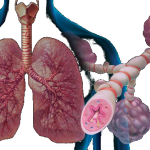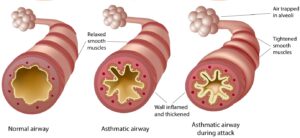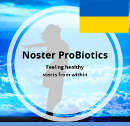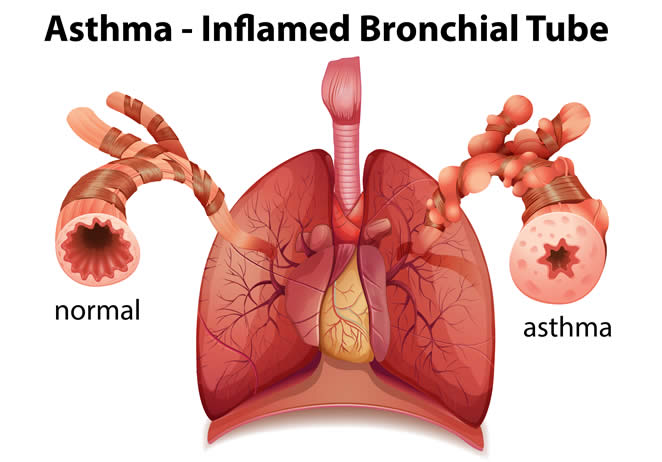 Asthma is defined as a respiratory condition characterised by breathing difficulties due to bronchospasms, which are the bronchi muscles constricting reducing their diameter.
Asthma is defined as a respiratory condition characterised by breathing difficulties due to bronchospasms, which are the bronchi muscles constricting reducing their diameter.
Understanding how lungs work is essential in understanding asthma.
The lungs consist of tiny bags at the end of the tubes. The tubes are called bronchi. These tubes or airways are sensitive to inhaled substances including dust and pollens. They become inflamed reducing their internal diameter and their ability to carry air t o the tiny bags, alveoli. To aggravate the situation, the muscles around the bronchi constrict further reducing the internal diameter.
o the tiny bags, alveoli. To aggravate the situation, the muscles around the bronchi constrict further reducing the internal diameter.
The cause is often due to allergies.
In the standard medical view, asthma is considered to be a chronic, long term, disease of the bronchial tubes in the lungs. The standard view is that it is not curable only manageable with various pumps, such as cortisones.
The interesting thing is there is virtually no asthma and other autoimmune diseases in developing countries whereas in the United States more than 25 million people have asthma, of that 7 million are children.
If we look at the mechanism of asthma, the bronchi are inflamed and the swelling doesn’t rectify itself, ie they remain inflamed for long periods. The inflammation obviously reduces the amount of air into the lungs.
Our model of the immune system is that it is divided into an inflammatory response, controlled by the body, followed by a regulatory response, controlled by the bacteria in our gut. When we have a continual inflammatory response we consider this to be an autoimmune disease.
So according to what we know we can consider asthma to be an autoimmune disease.
Our treatment of autoimmune diseases is the regular use of a live, colony-forming probiotic, such as Noster ProBiotic.

